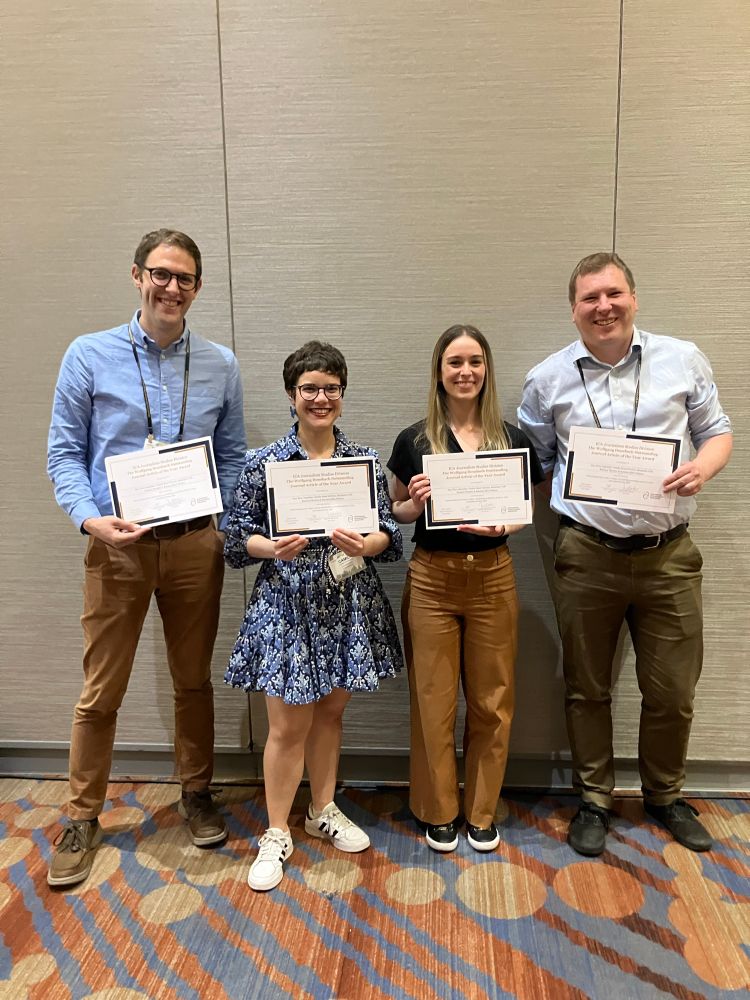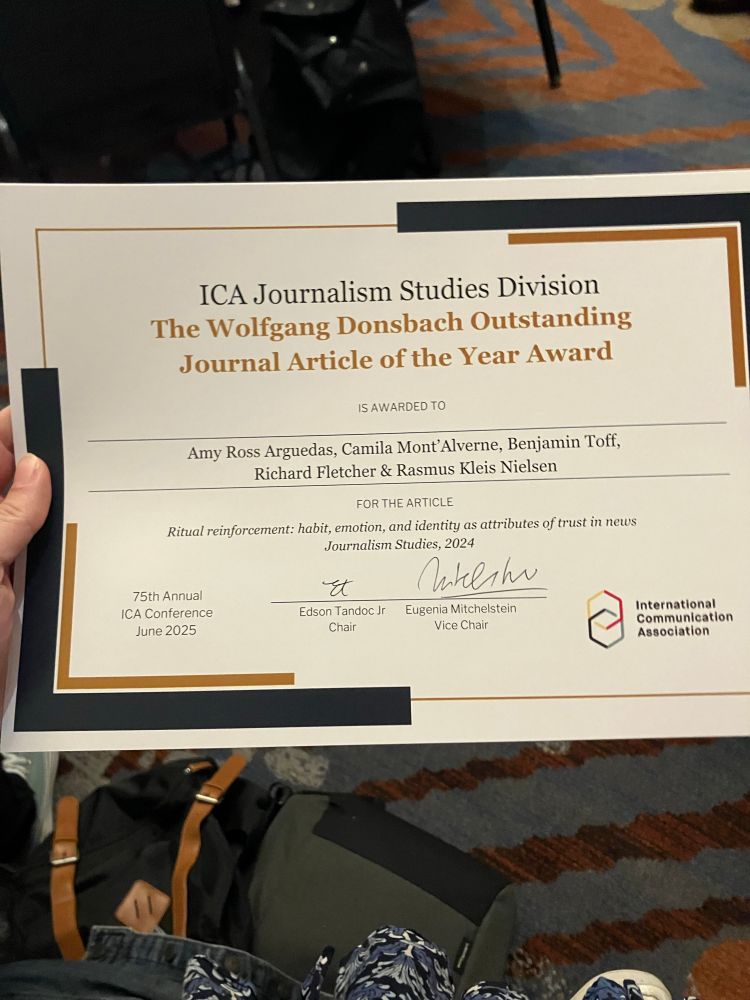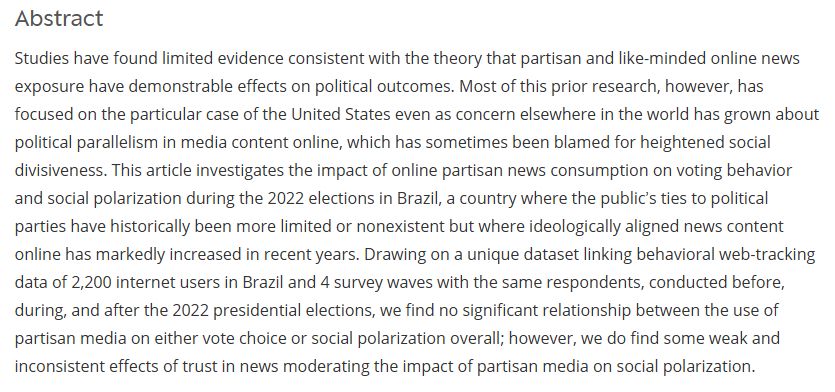Doing research on news consumption, trust in news, and political attitudes









Texto completo aqui: ijoc.org/index.php/ij...

Texto completo aqui: ijoc.org/index.php/ij...

Full text here: ijoc.org/index.php/ij...

Full text here: ijoc.org/index.php/ij...
















🗣️ Vínculos fracos com partidos políticos
✅ Voto obrigatório
📱 Alta dependência de fontes de informação online.

🗣️ Vínculos fracos com partidos políticos
✅ Voto obrigatório
📱 Alta dependência de fontes de informação online.
A IJPP acaba de publicar nosso artigo sobre o impacto da exposição a notícias partidárias na polarização social e no voto no contexto das últimas eleições brasileiras. Texto completo aqui: journals.sagepub.com/doi/10.1177/...


A IJPP acaba de publicar nosso artigo sobre o impacto da exposição a notícias partidárias na polarização social e no voto no contexto das últimas eleições brasileiras. Texto completo aqui: journals.sagepub.com/doi/10.1177/...





